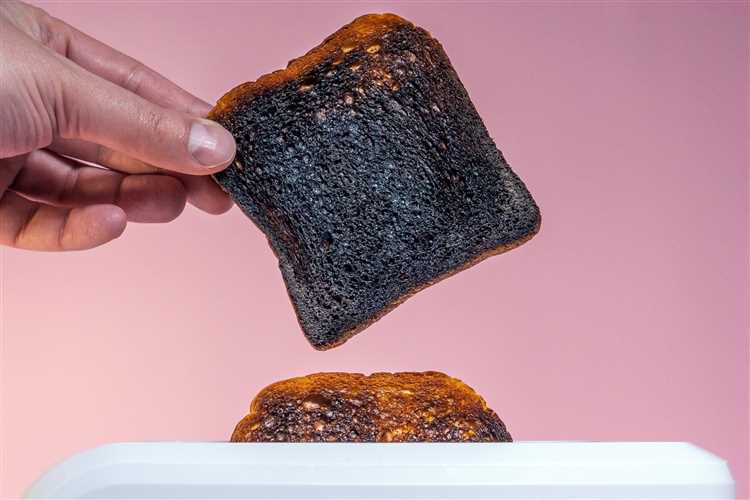
Smelling burning odors can be a distressing experience, but can it also be a warning sign of a stroke? While many people associate stroke symptoms with physical manifestations such as numbness or difficulty speaking, olfactory hallucinations can also be an indication of a stroke.
When a person experiences a stroke, a disruption in blood flow to the brain can cause various symptoms depending on the affected area. In some cases, this disruption can affect the olfactory system, leading to unusual smells such as burning or smoke. While it is not a common symptom, it is important to be aware that it can occur.
It is crucial to remember that smelling burning odors alone is not enough to diagnose a stroke. Other symptoms, such as difficulty speaking, sudden weakness or numbness in the face or limbs, and severe headaches, are typically present in conjunction with olfactory hallucinations. If you or someone you know experiences these symptoms, it is important to seek immediate medical attention.
- The Connection Between Smelling Burning Odors and Strokes
- Understanding the Sense of Smell
- What Causes Burning Odors?
- The Relationship Between Burning Odors and Stroke
- Recognizing the Warning Signs
- Seeking Immediate Medical Attention
- Preventing Strokes and Maintaining Overall Health
- Q&A
- Can smelling burning odors be a warning sign of a stroke?
- What are the other warning signs of a stroke?
- Is smelling burning odors always a sign of a stroke?
- What should I do if I experience smelling burning odors?
- Can phantosmia be treated?
- What are some warning signs of a stroke?
- Can smelling burning odors be a warning sign of a stroke?
The Connection Between Smelling Burning Odors and Strokes
Smelling unusual odors, such as burning or smoke, can sometimes be a warning sign of a stroke. While not a common symptom, it is important to recognize this potential connection and seek medical attention if experiencing this symptom.
A stroke occurs when blood flow to the brain is interrupted, either due to a blockage or a burst blood vessel. This interruption can lead to a range of symptoms, including sudden numbness or weakness in the face, arm, or leg, confusion, trouble speaking or understanding speech, difficulty seeing in one or both eyes, dizziness, and severe headache.
In some rare cases, individuals who are experiencing or have experienced a stroke may also report smelling strange odors, such as burning, smoke, or even a metallic scent. This phenomenon is known as phantosmia and is caused by a disruption in the brain’s olfactory system.
The olfactory system is responsible for processing smells and is closely connected to the limbic system, which controls emotions and memory. When a stroke occurs, the brain’s blood supply is compromised, leading to damage in various parts of the brain, including the olfactory system. This damage can result in abnormal sensory experiences, such as smelling burning odors when there is no actual source of the smell.
It is worth noting that not all individuals who experience phantosmia are having a stroke, as this symptom can also be caused by other factors, such as sinus infections, medication side effects, or brain tumors. However, if smelling burning odors is accompanied by other common stroke symptoms, it is crucial to seek immediate medical attention.
| Common Stroke Symptoms |
|---|
| Numbness or weakness in the face, arm, or leg (especially on one side of the body) |
| Confusion or trouble speaking or understanding speech |
| Trouble seeing in one or both eyes |
| Dizziness or loss of balance |
| Severe headache with no known cause |
If you or someone around you is experiencing these symptoms, it is important to call emergency services immediately. Prompt medical intervention can greatly increase the chances of a positive outcome following a stroke.
In conclusion, while smelling burning odors alone may not necessarily indicate a stroke, it should be taken seriously, especially if accompanied by other common stroke symptoms. Being aware of the potential connection between phantosmia and strokes can help individuals recognize the need for urgent medical attention and potentially prevent further damage. Remember, when in doubt, it is always better to err on the side of caution and seek professional medical advice.
Understanding the Sense of Smell
The sense of smell, or olfaction, is a powerful tool that allows us to detect and distinguish a wide range of odors. It is closely connected to our memory and emotions, and plays a crucial role in our daily lives.
When we inhale through our nose, the molecules from the odors around us bind to receptors in the nasal passages. These receptors then send signals to the olfactory bulb, which is responsible for processing and interpreting the scent information. From there, the information is transmitted to various parts of the brain, including the amygdala and hippocampus, which are involved in emotional and memory processing.
Our ability to detect different odors is influenced by various factors, including genetics, age, and overall health. Some people may have a more heightened sense of smell, while others may have a diminished sense of smell due to factors such as nasal congestion, smoking, or certain medical conditions.
Interestingly, certain smells can trigger specific memories or emotions, which is why the sense of smell is often referred to as the “Proustian phenomenon,” after the famous French writer Marcel Proust, who wrote about the power of smell in triggering memories.
However, the sense of smell can also be affected by certain health conditions. For example, some individuals may experience a distorted sense of smell, known as parosmia, where certain odors may be perceived as unpleasant or different than they actually are. This can be a result of damage or dysfunction in the olfactory system.
In rare cases, smelling burning odors could potentially be a warning sign of a stroke, although this is not a common symptom. It is important to consult a healthcare professional if you experience any unusual or persistent changes in your sense of smell, as they can help determine the underlying cause and provide appropriate treatment.
In conclusion, understanding the sense of smell is important not only for our everyday experiences but also for recognizing potential health issues. Being aware of any changes in our sense of smell and seeking medical attention when necessary can help ensure our overall well-being.
What Causes Burning Odors?

Burning odors can be caused by a variety of factors. One common cause is a malfunctioning electrical device or wiring, which can produce a burning smell when overheating or short-circuiting. This can include appliances, outlets, or even electrical panels.
Another possible cause is a problem with the HVAC system. Dust or debris buildup on heating elements can create a burning odor when they are turned on. Similarly, a clogged air filter can cause the system to work harder and emit a burning smell.
In some cases, burning odors can be linked to cooking mishaps. Leaving food unattended on the stove or in the oven for too long can cause it to burn and produce an unpleasant odor.
Additionally, chemicals or materials such as paint, cleaning products, or plastics can release toxic fumes when they burn. These fumes can result in a strong and distinctive burning smell.
It is important to note that while burning odors can sometimes be harmless, they should not be ignored. If you detect a burning smell and cannot identify the source, it is recommended to contact a professional for further investigation to ensure your safety.
The Relationship Between Burning Odors and Stroke
When it comes to our health, being aware of warning signs is crucial. One intriguing and potential warning sign of a stroke is the presence of burning odors. While not a common symptom, some stroke survivors have reported experiencing unusual smells, often described as burning or burning rubber.
Research is still ongoing to understand the exact relationship between burning odors and stroke. However, experts believe that this phenomenon may be linked to a condition known as phantosmia, which is the perception of smells that aren’t actually present. Phantosmia can occur due to damage to the olfactory system or the brain’s sensory processing areas.
It is important to note that not everyone who experiences burning odors will have a stroke. The presence of burning smells alone is not enough to diagnose or predict a stroke. It is crucial to consider other symptoms such as sudden weakness or numbness in the face or limbs, difficulty speaking or understanding speech, and severe headache. If these symptoms are present, it is essential to seek immediate medical attention.
If you or someone you know experiences burning odors, it is important to consult with a healthcare professional. They can assess your symptoms, perform necessary tests, and provide appropriate guidance. Early detection and treatment of strokes can significantly improve outcomes and reduce the risk of complications.
While more research is needed to fully understand the connection between burning odors and stroke, being aware of this potential warning sign can help individuals and healthcare providers take timely action. Remember, if you or someone you know experiences any symptoms of a stroke, don’t delay seeking medical assistance.
Disclaimer: This article is for informational purposes only and should not be considered a substitute for professional medical advice. Always consult with a qualified healthcare professional for proper diagnosis and treatment.
Recognizing the Warning Signs

Smelling burning odors can indeed be a warning sign of a stroke. However, it is important to note that this is just one of the many potential symptoms that may indicate a stroke. It is crucial to be aware of the other warning signs as well. Here are some common warning signs that could indicate a stroke:
- Sudden numbness or weakness in the face, arms, or legs, especially on one side of the body.
- Difficulty speaking or understanding speech.
- Confusion or trouble with coordination and balance.
- Severe headache with no known cause.
- Trouble seeing in one or both eyes.
- Dizziness or loss of consciousness.
- Difficulty walking or maintaining balance.
If you or someone you know is experiencing any of these warning signs, it is crucial to seek immediate medical attention. Recognizing the signs of a stroke and acting quickly can significantly improve the chances of a positive outcome.
It is worth noting that while smelling burning odors can be a warning sign of a stroke, it is not the only possible cause. Other factors, such as sinus infections, dental problems, or exposure to certain chemicals, can also lead to the perception of burning smells. Therefore, it is essential to consider the overall context and consult with a healthcare professional to determine the cause of such odors.
Seeking Immediate Medical Attention

If you experience any burning odors that cannot be attributed to external sources like burnt food or smoke, it is important to seek immediate medical attention. Burning smells can potentially be a warning sign of a stroke or other serious medical condition that requires immediate intervention.
When you notice a lingering burning odor, call emergency services or have someone drive you to the nearest hospital. It is essential to communicate the symptoms you are experiencing to medical professionals so they can properly diagnose and treat any underlying conditions.
While waiting for medical assistance, it is crucial to stay calm and avoid any activities that may aggravate the situation. Sit or lie down in a comfortable position and try to keep your anxiety levels low. Stay away from any potential hazards such as open flames or chemicals that could be dangerous if impaired.
Remember, prompt medical attention is crucial in cases of potential stroke or other medical emergencies. Do not delay seeking help, as early intervention can greatly improve the chances of positive outcomes. It’s always better to be safe than sorry when it comes to your health.
Additionally, it is important to educate yourself and your loved ones about the warning signs of a stroke and other medical emergencies. Knowing what to look out for and how to act can make a significant difference in the outcome. Stay informed and be proactive in seeking medical attention when necessary.
Preventing Strokes and Maintaining Overall Health

Strokes can be life-threatening and have serious long-term consequences. However, there are steps you can take to reduce your risk of experiencing a stroke. By maintaining a healthy lifestyle, you can improve your overall health and decrease the likelihood of having a stroke.
Here are some tips for preventing strokes and maintaining overall health:
- Follow a balanced diet: Consuming a diet rich in fruits, vegetables, whole grains, and lean proteins can help lower your risk of strokes. Avoiding high-sodium, processed foods, and sugary drinks is also crucial.
- Exercise regularly: Engaging in physical activity for at least 30 minutes a day can improve cardiovascular health and reduce the risk of strokes. Activities such as walking, swimming, or cycling can be beneficial.
- Maintain a healthy weight: Being overweight or obese increases the risk of strokes. By achieving and maintaining a healthy weight, you can reduce this risk and improve overall health.
- Avoid smoking: Smoking damages blood vessels and increases the risk of strokes. Quitting smoking is one of the best things you can do for your health and can significantly lower the risk of experiencing a stroke.
- Limit alcohol consumption: Excessive alcohol intake can raise blood pressure levels and increase the risk of strokes. It is important to drink in moderation or avoid alcohol altogether.
- Control chronic conditions: Conditions such as high blood pressure, diabetes, and high cholesterol can increase the risk of strokes. Working with healthcare professionals to manage these conditions through medication, lifestyle changes, and regular check-ups can help reduce the risk.
- Schedule regular check-ups: Regular visits to your healthcare provider can help identify and manage any underlying health conditions that may increase the risk of strokes. Monitoring blood pressure, cholesterol levels, and overall health can aid in stroke prevention.
- Manage stress levels: High-stress levels can contribute to an increased risk of strokes. Engaging in stress-reducing activities such as meditation, yoga, or hobbies can help manage stress and improve overall well-being.
- Stay hydrated: Drinking an adequate amount of water daily can help maintain healthy blood flow and reduce the risk of strokes.
- Get enough sleep: Poor sleep quality and duration have been linked to an increased risk of strokes. Prioritizing sufficient sleep (7-9 hours for adults) can support overall health and reduce stroke risk.
By incorporating these lifestyle changes into your daily routine, you can take proactive steps towards preventing strokes and maintaining overall health. Remember, it is essential to consult with a healthcare professional for personalized advice tailored to your specific needs and risk factors.
Q&A
Can smelling burning odors be a warning sign of a stroke?
Yes, smelling burning odors can be a warning sign of a stroke. It is known as phantosmia, which is a condition where a person smells odors that are not actually present. Phantosmia can occur during a stroke due to the disruption of blood flow to the olfactory system in the brain. It is important to seek medical attention if you experience phantosmia, as it can be a symptom of a serious underlying condition.
What are the other warning signs of a stroke?
Other warning signs of a stroke include sudden numbness or weakness in the face, arm, or leg (especially on one side of the body), confusion, trouble speaking or understanding speech, difficulty seeing in one or both eyes, trouble walking, dizziness, and severe headache. It is important to remember the acronym FAST to help identify these warning signs – Face drooping, Arm weakness, Speech difficulties, and Time to call emergency services.
Is smelling burning odors always a sign of a stroke?
No, smelling burning odors is not always a sign of a stroke. Phantosmia, or smelling odors that are not present, can be caused by various factors such as nasal infections, exposure to certain chemicals, or even certain medications. However, if you experience the sudden onset of phantosmia or any other warning signs of a stroke, it is important to seek medical attention to rule out any serious underlying conditions.
What should I do if I experience smelling burning odors?
If you experience smelling burning odors, it is important to pay attention to any other accompanying symptoms. If you are also experiencing other warning signs of a stroke, such as weakness or numbness on one side of your face or body, confusion, or trouble speaking, you should call emergency services immediately. If the phantosmia persists or if you are concerned about your symptoms, it is always a good idea to consult with a healthcare professional to determine the underlying cause.
Can phantosmia be treated?
The treatment for phantosmia depends on the underlying cause. If it is determined that a stroke or other underlying medical condition is causing the phantosmia, the focus will be on treating that condition. However, in some cases, phantosmia may not have a specific treatment and may resolve on its own over time. If the phantosmia is causing significant distress or affecting your quality of life, you may consider discussing treatment options with a healthcare professional.
What are some warning signs of a stroke?
Some common warning signs of a stroke include sudden numbness or weakness in the face, arm, or leg, especially on one side of the body. Other signs may include sudden confusion, trouble speaking or understanding speech, sudden trouble seeing in one or both eyes, sudden trouble walking, dizziness, loss of balance or coordination, and sudden severe headache with no known cause.
Can smelling burning odors be a warning sign of a stroke?
Yes, smelling burning odors can potentially be a warning sign of a stroke. The sense of smell is closely linked to the brain, and certain types of strokes can cause sensory disturbances, including olfactory hallucinations or distorted sense of smell. However, it’s important to note that there can be many different causes for smelling burning odors, and it doesn’t necessarily mean a stroke is occurring. If you experience this symptom, it is advisable to seek medical attention to determine the underlying cause.